IFEEDER Fodder
-
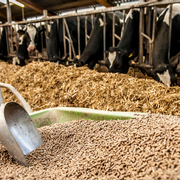
- November 2, 2022
- When You Do Good Work, Sometimes You Make Headlines
-
This week, the Institute for Feed Education and Research (IFEEDER) made headlines for the research work we support at the Clarity and Leadership for Environmental Awareness and Research (CLEAR) Center at the University of California-Davis. Despite detractors’ efforts to discredit research underway, we are proud of the work we do with public institutions, such as the CLEAR Center. We can’t address food security while reducing our environmental impact independently. We must engage.
- By Lara Moody
-
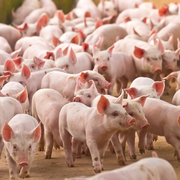
- September 22, 2022
- Lessons for Feed from Animal Agriculture's Sustainability Journey
-
Our peers in animal agriculture, that is the farmers and ranchers who produce meat, milk and eggs every day for Americans to eat, must think holistically about the sustainability of their production systems. Beyond their downstream customers’ sustainability reporting desires, they are responsible to the communities surrounding their farms, regulatory agencies monitoring environmental impact and consuming public’s perceptions.
- By Lara Moody
-
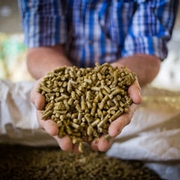
- August 30, 2022
- 3 Things to Know About Life Cycle Assessments (LCA) for your Products or Production System
-
There is a growing interest for animal food companies to better understand the impacts of their operations and supply chains to identify market opportunities and meet expectations of downstream stakeholders. Utilizing life cycle assessment (LCA) tools are a great way to assess the footprint of operations and existing product lines. They can also be used to innovate and seize on growing demand for sustainable products in the marketplace.
- By Lara Moody
-
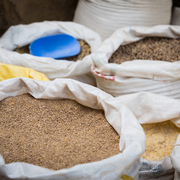
- August 4, 2022
- Livestock Feed is an Undervalued Opportunity for Food Companies to Achieve Sustainability Goals
-
Most of the environmental impact for animal protein is embedded in the feed that animals eat. By reducing feed impacts, food companies have an opportunity to make significant progress toward climate and sustainability goals.
- By Lara Moody
-
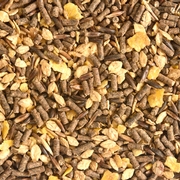
- April 5, 2022
- Understanding the Implications of GM-Free Feed
-
In recent years, an increasing number of foods are being marketed and labeled as free of genetically modified (GM) ingredients. For milk, meat or eggs, this means the animals these foods come from are fed exclusively non-GM feed. You need to look no further than current headlines to see the attention given to rising food prices, the need to curb greenhouse gas (GHG) emissions and other sustainability elements.
- By Lara Moody
-
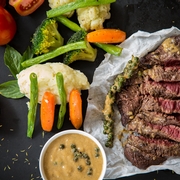
- January 20, 2022
- Evaluating Circular Food Systems Invites Perspectives on Diet Sustainability
-
Attention to our own health and the health of our planet has given rise to an array of diet recommendations that have advice for optimizing both. Relative to the planet, advocates for reduced meat diets point to the environmental impacts attributed to animal production as a key issue, whereas advocates for meat as a good protein source point to the beneficial role that animal production plays in better soil health and conservation agriculture. Like many concepts, the truth is unclear, understanding the issues around diets and agriculture is complex and many options may be viable, depending on your goals.
- By Lara Moody
-
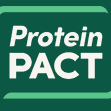
- December 9, 2021
- Uniting Feed and Animal Protein Production Through the Protein PACT
-
Consumers today want to see that our food choices have a positive impact on our health, communities and the environment around us. We at the North American Meat Institute (NAMI) believe that eating meat is not only compatible with that goal, it is integral to achieving it - we cannot achieve the sustainable, healthy future people need without meat.
- By Guest
-
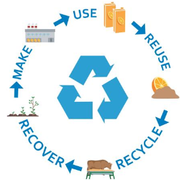
- December 6, 2021
- Valuing Circularity in Sustainable Food Systems
-
A circular economy seeks to design out waste and pollution, keep products and materials in use and regenerate natural systems. Waste reduction and food loss recovery via the utilization of coproducts and by-products has long been a component of the animal feed and pet food supply chain. As the animal food industry considers its role in climate neutrality and other sustainability outcomes, we must also advance our ability to measure and assess existing processes as well as new technologies.
- By Lara Moody
-
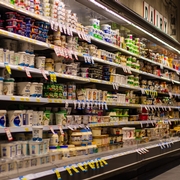
- November 4, 2021
- Can Consumer Perspectives Impact Sustainability Actions?
-
The short answer to my question is: yes! In “Part 1 – Defining Sustainability” of the Institute for Feed Education and Research’s (IFEEDER) webinar series, Kim Stackhouse-Lawson, Ph.D., director of AgNext at Colorado State University, shared an important idea for agricultural sustainability efforts, which is that sustainability is driven by both science and emotion. The recent Journal of Dairy Science article “Sustainability: Different Perspectives, Inherent Conflict” offers insights on consumer perspectives that further confound sustainability discussions.
- By Lara Moody